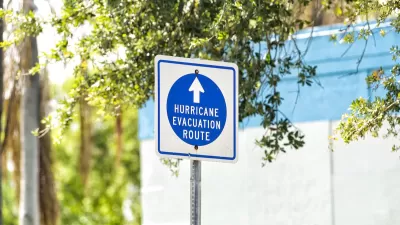The U.S. Corps of Engineers and Redington Shores, Florida are at a standstill: The Corps won’t spend public money to restore private beaches, and homeowners are refusing to grant public access to the beaches behind their home in return for federal assistance.

Redington Shores, Florida, a “well-heeled beach town in Pinellas County” have a problem: the beach between them and the Gulf of Mexico is disappearing fast. According to a Grist article by Jake Bittle, “A series of storms, culminating in last fall’s Hurricane Idalia, have eroded most of the sand that protects Redington Shores and the towns around it, leaving residents just one big wave away from water overtaking their homes.”
The federal government, specifically the U.S. Corps of Engineers, has offered to haul in $42 million of new sand on the condition that 461 of waterfront homeowners provide public points of access to the beaches behind their homes. Pinnellas County officials tried to get homeowners to sign the easements, but half of the homeowners refuse.
“This situation highlights growing tensions between the federal government and homeowners in coastal areas that are threatened by climate change. As sea levels have risen and strong storms have caused greater damage than ever before, the costs of protecting and insuring beachfronts in Florida and other states have increased rapidly,” Bittle writes. He reports that the Corps put the easement policy in place decades ago so that it didn’t spent public money to restore private beaches.
Local and federal officials worry that Redington Shores, Florida, and areas like it where homeowners are more concerned about views and privacy than their homes being decimated are “sitting ducks for the next climate-fueled storm.” But for now, neither the Corps nor the coastal homeowners are willing to budge.
Updated on June 7, 2024 at 4:30 Eastern to reflect that the story was originally published by Grist. We first attributed it to Fast Company, which ran the it as a reprint.
FULL STORY: The homeowner mutiny leaving Florida cities defenseless against hurricanes

Maui's Vacation Rental Debate Turns Ugly
Verbal attacks, misinformation campaigns and fistfights plague a high-stakes debate to convert thousands of vacation rentals into long-term housing.

Planetizen Federal Action Tracker
A weekly monitor of how Trump’s orders and actions are impacting planners and planning in America.

In Urban Planning, AI Prompting Could be the New Design Thinking
Creativity has long been key to great urban design. What if we see AI as our new creative partner?

How Trump's HUD Budget Proposal Would Harm Homelessness Response
Experts say the change to the HUD budget would make it more difficult to identify people who are homeless and connect them with services, and to prevent homelessness.

The Vast Potential of the Right-of-Way
One writer argues that the space between two building faces is the most important element of the built environment.

Florida Seniors Face Rising Homelessness Risk
High housing costs are pushing more seniors, many of them on a fixed income, into homelessness.
Urban Design for Planners 1: Software Tools
This six-course series explores essential urban design concepts using open source software and equips planners with the tools they need to participate fully in the urban design process.
Planning for Universal Design
Learn the tools for implementing Universal Design in planning regulations.
Gallatin County Department of Planning & Community Development
Heyer Gruel & Associates PA
JM Goldson LLC
City of Camden Redevelopment Agency
City of Astoria
Transportation Research & Education Center (TREC) at Portland State University
Jefferson Parish Government
Camden Redevelopment Agency
City of Claremont





























